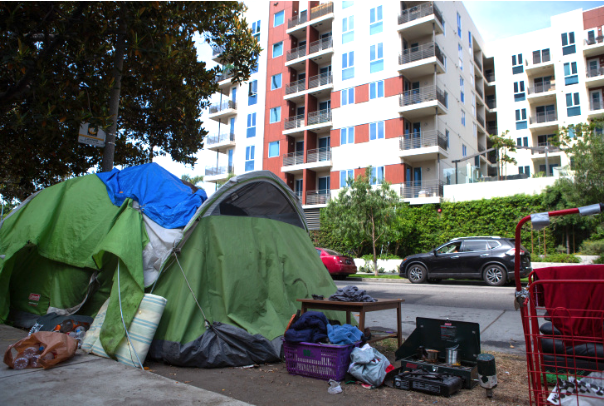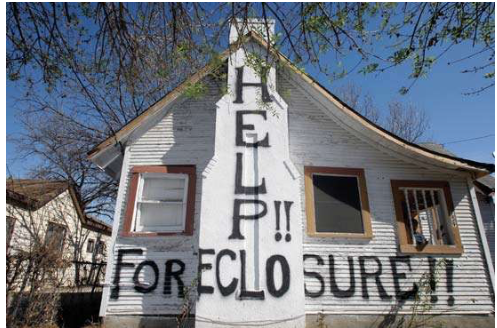CommentsPLANNING WATCH-Hats off to former Los Angeles County Supervisor Zev Yaroslavsky and journalist Jill Stewart for schooling us about the WIMBYs (Wall Street in my Back Yard).
Whether corporate real estate shills or their understudies in local AstroTurf organizations, the WIMBYs spin tall tales to justify special treatment for real estate speculators, even during a Pandemic.
WIMBYs before the Pandemic: The WIMBYs concentrated their political energies on the adoption of municipal ordinances and state laws that increased the market value of old, shabby real estate, especially commercial and multi-family parcels. At the state level, Senator Scott Wiener has gotten the most attention with his series of defeated up-zoning bills, such as SB 827 and SB 50.
Like all WIMBYs, his justification was that peeling back zoning laws would create a housing boom, and this boom would produce a deluge of new (market rate) housing. These new homes would soon trickle down through market magic to end California’s housing crisis, including homelessness. In reality, though, this WIMBY up-zoning gift bag to real estate investors would have made the housing crisis even worse, not better, because it would have accelerated the replacement of existing low-priced housing with expensive market housing.
In Los Angeles, the Mayor advocated and the City Council and City Planning Commission also supported many WIMBY-originated ordinances. This included Measure JJJ, which City Hall altered to become the TOC Guidelines and then illegally folded them into the Los Angeles Municipal Code. Other WIMBY-blessed schemes include SB 1818 density bonuses and extensive upzoning ordinances piggy-backed onto updated Community Plans.
By upzoning many parcels in one sweeping action, the market value of favored properties soars, the hallmark of WIMBYism. Property owners can then cash in their chips by flipping their re-valued properties or colluding with investors and developers to demolish existing residences and replace them with new, expensive McMansions and apartment buildings.
In Los Angeles this has been the engine of the gentrification process, which has produced tent cities in front of new apartment buildings.

Joined at the hip: L.A. homeless encampment in front of new apartments.
WIMBYs during the Pandemic: During the Pandemic the WIMBYs have not missed a beat, supporting speculative real estate projects they hope can outrace an economic crisis that could rival the Great Depression.
Lucky for the WIMBYs, the Mayor’s daily briefings skip over his decision to exempt non-essential residential demolitions and construction from his Covid-19 Executive Orders. To cover this payback from real estate campaign donors, LA's Department of Building and Safety posted CDC construction guidelines on its website. But these Guidelines are not enforceable laws, and even if contractors voluntarily followed them, such as maintaining a log of all those who entered busy construction sites, their McMansions and luxury apartment buildings would still not be essential. No amount of real estate sector pay-offs to elected officials can transform speculative real estate gambles into crucial hospitals, grocery stores, and pharmacies.
This WIMBY lobbying success thrives in a non-Pandemic universe. In this world investors pony up the cash and gifts, contractors keep projects on track, construction workers toil until they succumb to Covid-19, nearby residents take it on the chin, and elected officials rely on the corporate media for puff pieces.
As explained by Casey Maddren in his recent CityWatch article, this gentrification process is not simply business-as-usual during the Pandemic. City Planning has continued to issue discretionary zoning waivers, while City Hall discontinued certain public hearings and appeals. All cases that were previously considered by Neighborhood Councils (NC) will continue without NC hearings and recommendations. Likewise, some cases that require applicants to agree to continuances will barrel through to adoption without any public comments.
The Windsor Square – Hancock Park Historical Association politely summed up this new Pandemic planning reality in an email to its members:
“During the Stay-At-Home restrictions, all City Planning, Cultural Heritage Commission, Neighborhood Council Land Use Committee, and HPOZ board meetings are currently unable to hold meetings to review pending project applications, ask questions of developers, and hear stakeholder input. However, the City Planning Department is still continuing to process applications and moving forward with project entitlements.”
For those who know about Naomi Klein’s shock doctrine concept, this is a text book case of WIMBY-friendly public sector bad actors rolling out developer-friendly practices under the cover of the Covid-19 crisis.
WIMBYs after the Pandemic: The small players who focus on municipal politics will undoubtedly pursue demolitions, McMansions, and luxury apartment buildings until their investors pull the plug or they can’t find replacement construction workers at a Home Depot. But, what about the WIMBY big boys? In Investors See Bonanza in Distressed Real Estate the April 8, 2020, Wall Street Journal (WSJ), reported that many large real estate firms have long prepared for a deep economic crisis, such as Covid-19.
Learning lessons from the 2008 Great Recession’s mass foreclosures, companies like Blackstone are ready to quickly buy distressed real estate at heavily discounted prices. After that, their corporate options are to hold on these projects as a passive investment, rent them back to former home owners, sell them off when then the real estate market rebounds, and/or sell derivatives based on future income from their newly acquired and underpriced properties.

One of 7,000,000 homes foreclosed in 2008-2010.
Donald Trump may claim that no one saw this crisis coming, but the WSJ tells a different story. It was not just government agencies and epidemiologists who saw over the horizon, but also major investors:
- Many investment firms, like Blackstone, Brookfield, and Starwood, are eyeing hotels, retail properties, mortgage-backed securities, and other assets that have come under stress in recent weeks as the Coronavirus has closed businesses across the country, leaving them unable to pay rent and their landlords unable to pay their mortgage bills.
- Many real estate investors have been waiting for this to happen for over a decade.
- A growing number of property investors are preparing for what they believe could be a once-in-a-generation opportunity to acquire distressed real estate assets of bargain prices.
- Investors expect mortgage defaults to increase over the coming weeks and months. Once a borrower defaults, the lender often chooses to sell the loan at a discount to avoid the hassle of a lengthy foreclosure lawsuit.
- Investors now expect a downturn worse than 2008-2010. This time the sudden shutdown of vast parts of the U.S. economy is leaving landlords with less rental income, and many may default on their mortgages this month.
Welcome to the class divide ushered in by the WIMBY’s and their political allies during and after the Covid-19 Pandemic. For you it might be a period of illness, death of loved ones, and hardship, but for them it is an investment opportunity that comes once in a generation.
(Dick Platkin is a former Los Angeles city planner who reports on local planning issues for CityWatch. He serves on the board of United Neighborhoods for Los Angeles (UN4LA) and is co-chair of the new Greater Fairfax Residents Association. Please send comments and corrections to [email protected].) Prepped for CityWatch by Linda Abrams.















